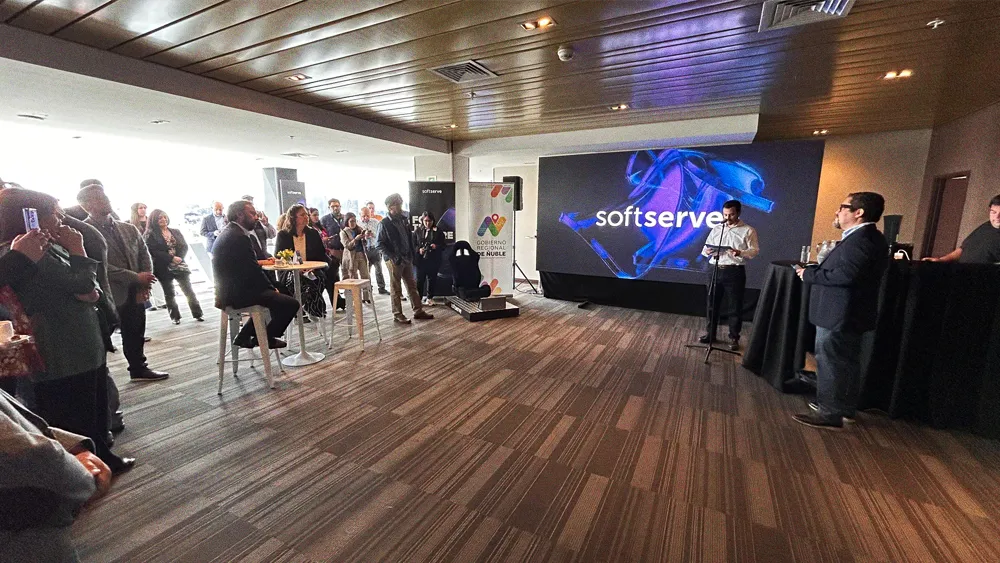While AI is screening candidates behind closed doors, oftentimes applicants are left in the dark

Key Points
Job application numbers are soaring, but AI isn’t effectively managing the influx, causing issues for both companies and candidates.
Avanade’s Kate Warman points out the opaque use of AI in recruitment, with a significant number of applicants choosing to bypass AI evaluations.
AI’s role in hiring is to assist, not replace, human decision-making, except for essential qualifications.
Warman urges recruiters to focus on existing candidate databases rather than solely screening new applicants.
I’m in a unique situation where I'm both an implementer and a job seeker, and what I’m finding is zero transparency. Interestingly, we're seeing about 30% of applicants globally opting out of having AI review their resume. But as an applicant myself, I have no idea how other companies are utilizing AI, and I certainly have no ability to opt out.

Kate Warman
Head of Global Operations, Talent Acquisition
Avanade
Hiring has a problem: application volume is skyrocketing, recruiter bandwidth isn’t, and AI isn’t the fix it promised to be. With little transparency into how it’s used, companies are buried in resumes while qualified candidates feel like they’re shouting into a void.
Kate Warman serves as Head of Global Operations for Talent Acquisition at Avanade, a joint venture between Microsoft and Accenture, where she architects the technologies and processes supporting its global recruiting engine. Her work modernizing HR gives her a unique perspective on the promise of AI and the messy reality of its implementation.
No way out: “I’m in a unique situation where I’m both an implementer and a job seeker, and what I’m finding is zero transparency,” Warman says. Her own team’s work proves it doesn’t have to be this way. “Interestingly, we’re seeing about 30% of applicants globally opting out of having AI review their resume. But as an applicant myself, I have no idea how other companies are utilizing AI, and I certainly have no ability to opt out.”
Hardly a TKO: Much of the fear around AI in hiring, Warman argues, stems from a misunderstanding of its role. “AI shouldn’t be screening anyone out; that’s what knockout questions are for.” At Avanade, those knockout questions are reserved for non-negotiables like work authorization or language fluency—everything else still requires a recruiter’s judgment. “Do you have Salesforce experience? Dynamics CRM experience? That’s all something the recruiter still has to evaluate and decide whether or not they want to move forward,” explains Warman.
The problem, she says, is a lack of transparency. “It doesn’t mean you don’t look at the other 90 candidates. AI is not ruling those people out.” But across the industry, it’s unclear how others are deploying these tools—and that ambiguity comes with risk. “I think that’s one of the big mysteries the Mobley lawsuit will clarify.”
Second, the best: Instead of looking outward, she says the real opportunity lies within. “The most promising thing I see is being able to surface and engage with candidates that are already in your database—your ‘silver medalists,’” she says. “We have such a robust richness within our own databases that, as an industry, we are not utilizing.”
No substitute for soul: The push for automation overlooks the core of recruiting, which is a human function. Warman points to a distinction: AI can simulate conversation, but it cannot actually have one. She finds a stark irony in recent findings that therapy is a top use for AI, noting a societal craving for connection that machines cannot genuinely fulfill. “A good recruiter gets to know the job, gets to know the candidate, and sees the match in a way that goes beyond just keywords,” she says. “When you take out that human review, you’re really losing the ability for the recruiter to be that advocate for the candidate.”
Identity crisis: The reliance on human evaluation now faces a more urgent crisis of trust in a remote world. “You now have the introduction of these fake candidates, which is causing a lot of stress,” Warman says, referencing sophisticated actors from places like North Korea trying to access U.S. tech companies. The result is a tangible new problem for recruiters: “How do you actually validate that the person you interviewed is the person who shows up on day one? These are real problems that people are tackling every day.”
Rise of the human: The conversation ultimately shouldn’t be about replacement, but about augmentation and evolution. “It’s taking the work that’s done by humans and automating it, enhancing it, and enabling the human to do something totally new,” Warman says. “That’s the real interesting and exciting horizon that we’re seeing with AI.”
The most promising thing I see is being able to surface and engage with candidates that are already in your database—your ‘silver medalists.’ We have such a robust richness within our own databases that, as an industry, we are not utilizing.

Kate Warman
Head of Global Operations, Talent Acquisition
Avanade
The most promising thing I see is being able to surface and engage with candidates that are already in your database—your ‘silver medalists.’ We have such a robust richness within our own databases that, as an industry, we are not utilizing.

Kate Warman
Head of Global Operations, Talent Acquisition
Avanade
Related articles
TL;DR
Job application numbers are soaring, but AI isn’t effectively managing the influx, causing issues for both companies and candidates.
Avanade’s Kate Warman points out the opaque use of AI in recruitment, with a significant number of applicants choosing to bypass AI evaluations.
AI’s role in hiring is to assist, not replace, human decision-making, except for essential qualifications.
Warman urges recruiters to focus on existing candidate databases rather than solely screening new applicants.

Kate Warman
Avanade
Head of Global Operations, Talent Acquisition

Head of Global Operations, Talent Acquisition
Hiring has a problem: application volume is skyrocketing, recruiter bandwidth isn’t, and AI isn’t the fix it promised to be. With little transparency into how it’s used, companies are buried in resumes while qualified candidates feel like they’re shouting into a void.
Kate Warman serves as Head of Global Operations for Talent Acquisition at Avanade, a joint venture between Microsoft and Accenture, where she architects the technologies and processes supporting its global recruiting engine. Her work modernizing HR gives her a unique perspective on the promise of AI and the messy reality of its implementation.
No way out: “I’m in a unique situation where I’m both an implementer and a job seeker, and what I’m finding is zero transparency,” Warman says. Her own team’s work proves it doesn’t have to be this way. “Interestingly, we’re seeing about 30% of applicants globally opting out of having AI review their resume. But as an applicant myself, I have no idea how other companies are utilizing AI, and I certainly have no ability to opt out.”
Hardly a TKO: Much of the fear around AI in hiring, Warman argues, stems from a misunderstanding of its role. “AI shouldn’t be screening anyone out; that’s what knockout questions are for.” At Avanade, those knockout questions are reserved for non-negotiables like work authorization or language fluency—everything else still requires a recruiter’s judgment. “Do you have Salesforce experience? Dynamics CRM experience? That’s all something the recruiter still has to evaluate and decide whether or not they want to move forward,” explains Warman.
The problem, she says, is a lack of transparency. “It doesn’t mean you don’t look at the other 90 candidates. AI is not ruling those people out.” But across the industry, it’s unclear how others are deploying these tools—and that ambiguity comes with risk. “I think that’s one of the big mysteries the Mobley lawsuit will clarify.”
Second, the best: Instead of looking outward, she says the real opportunity lies within. “The most promising thing I see is being able to surface and engage with candidates that are already in your database—your ‘silver medalists,’” she says. “We have such a robust richness within our own databases that, as an industry, we are not utilizing.”

Kate Warman
Avanade
Head of Global Operations, Talent Acquisition

Head of Global Operations, Talent Acquisition
No substitute for soul: The push for automation overlooks the core of recruiting, which is a human function. Warman points to a distinction: AI can simulate conversation, but it cannot actually have one. She finds a stark irony in recent findings that therapy is a top use for AI, noting a societal craving for connection that machines cannot genuinely fulfill. “A good recruiter gets to know the job, gets to know the candidate, and sees the match in a way that goes beyond just keywords,” she says. “When you take out that human review, you’re really losing the ability for the recruiter to be that advocate for the candidate.”
Identity crisis: The reliance on human evaluation now faces a more urgent crisis of trust in a remote world. “You now have the introduction of these fake candidates, which is causing a lot of stress,” Warman says, referencing sophisticated actors from places like North Korea trying to access U.S. tech companies. The result is a tangible new problem for recruiters: “How do you actually validate that the person you interviewed is the person who shows up on day one? These are real problems that people are tackling every day.”
Rise of the human: The conversation ultimately shouldn’t be about replacement, but about augmentation and evolution. “It’s taking the work that’s done by humans and automating it, enhancing it, and enabling the human to do something totally new,” Warman says. “That’s the real interesting and exciting horizon that we’re seeing with AI.”




